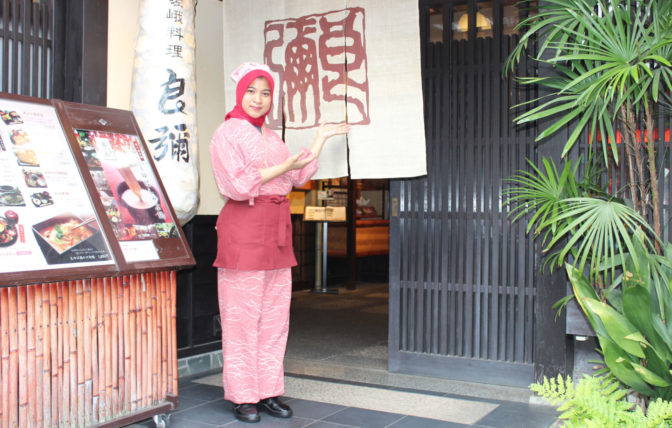
 "
"

 "
"

Tokyo – According to the Japan Halal Association, once the COVID-19 pandemic has passed, Japan could become a significant market for the halal food sector.
The Japan Halal Association’s (JHA) head of halal certification and international relations, Faslin Mohammed Lafir, said the country’s Muslim population is around 120,000, with an estimated 10,000 Japanese converting to Islam each year, boosting potential halal sales.
According to a study published in the third quarter of 2021 by UK-based GlobalData, 29 percent of Japan’s 125 million consumers are interested in trying halal food or beverages. According to the study, the appeal was particularly strong among those aged 35 to 44, with 41% showing interest.
Maru and Sadia chicken from Brazil, Turkish Barabu dried pulses, cheeses from Turkey’s Sütaş, and chicken, lamb, and beef from Turkey’s Lezita, HasTavuk, and Koytur are all popular halal brands in Japan. Indonesia’s Mie Sedaap and Turkey’s Filiz are two popular halal noodle brands, as are Turkey’s Koska and Gülsan jams. Meanwhile, Tadim, a Turkish company, exports halal snacks such as roasted pumpkin and sunflower seeds. Beyzade, also from Turkey, makes desserts like baklava.
“This is a relatively new market for halal food, and it is still quite small at the moment. But it was certainly growing before the pandemic and I see no reason why it cannot grow again when the coronavirus is over,” said Faslin, who is originally from Sri Lanka but has lived in Japan for four years.
In recent years, more than 1,000 companies in Japan have received halal certification, according to Faslin, who also noted that the Japanese ministry of agriculture and fisheries has yet to release any reliable statistics on national halal food sales.
One significant growth factor has been Muslim tourists visiting Japan, especially from Indonesia, Singapore and Malaysia, he said. Japanese restaurants are keen to let Muslim patrons know that they follow halal preparation guidelines for their dishes. “When Muslim travellers come to Japan, of course they want to try local food, so we are helping to certify restaurants that have Wagyu beef on their menu, for example, of high-quality soy sauce, green tea and other beef, chicken or mutton dishes,” he said.
Manufacturers of those products are also looking for certification so that they can sell their products in new markets. However, because the travel sector has been severely impacted by the pandemic, domestic halal businesses are largely reliant on local Muslim residents, some expatriates who have set up small businesses, and university students, according to Faslin.